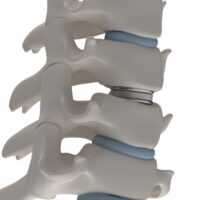Is Artificial Disc Replacement “Experimental and Investigational”?

If you ever see the phrase “experimental and investigational,” it’s likely to be in the context of a letter from the insurance company refusing to cover your requested surgery or other medical procedure. “Experimental and investigational” is a favorite phrase of the insurance industry. Carriers create internal memos, called Policy Bulletins, that label a particular procedure or medical device as experimental and investigational, and then they rely on that memo to issue blanket denials of all requests for the treatment, without conducting an individualized assessment of the patient’s condition and whether the requested procedure might be appropriate. These blanket denials could be seen as an abdication of the insurer’s duty to investigate each claim individually and make a decision based on the specific facts of the case. Denials like these might even be considered insurance bad faith. Additionally, lawyers who represent patients have found that insurance companies label some treatments as “experimental and investigational” despite abundant evidence demonstrating the procedure is neither experimental nor investigational. Artificial disc replacement is one such example.
Policyholders Sue Aetna for Disc Replacement Surgery
The California insurance law firm Gianelli & Morris filed a lawsuit last year in federal court, alleging that Aetna breached its duty to policyholders by refusing to pay for two patients’ doctor-recommended lumbar artificial disc replacement (L-ADR) surgery. Both patients received denial letters from Aetna that were nearly identical in form. The ground for denial was that L-ADR is “experimental and investigational.” However, the FDA has approved artificial discs as Class III medical devices for more than 15 years. Class III medical devices have to meet strict standards regarding safety and efficacy to meet FDA approval.
Additionally, L-ADR has been shown to be safe and effective in a number of controlled clinical trials that have been reported on and published in peer-reviewed articles. Even other major insurance carriers such as Anthem, Cigna, Humana and United HealthCare all cover the surgery. This pile of evidence makes it a mystery why Aetna would stick to its “experimental and investigational” story.
Back-to-Back Back Treatment Denials
The “experimental and investigational” approach has also been used by insurers to refuse to cover another back treatment. This time, the coverage in question regards the use of a Coflex medical device to treat lumbar spinal stenosis. Unlike degenerative disc disease (sometimes requiring disc replacement), spinal stenosis involves a narrowing of the spaces in the spine, which can cause numbing, weakness and partial paralysis by impinging on the nerves in the spinal column. Instead of the traditional treatment for spinal stenosis, which requires removing tissues and bone from the patient, along with spinal fusion in some instances, the Coflex procedure involves making a minimal incision and inserting a spacer to keep the compressed area open and stabilized.
Once again, Gianelli & Morris initiated litigation on behalf of a patient whose medical request was denied by the insurer, this time in California state court. In this case, the insurance carrier using the “experimental and investigational” cover to deny a procedure was Blue Shield of California. Just like L-ADR, Coflex has been approved for years by the FDA as a Class III medical device through a “rigorous and exhaustive” process, according to the United States Supreme Court. Coflex has also been labeled safe and effective after numerous peer-reviewed clinical studies and has been successfully used by spine surgeons nationwide. Both L-ADR and Coflex have received endorsements from the major associations of spine surgeons.
Are These Denials in Bad Faith?
How do insurers like Aetna and Blue Shield get away with calling a procedure “experimental and investigational” when it has been in use for more than a decade, approved by the FDA, and passed the gauntlet of numerous clinical studies and peer-reviewed studies? More importantly, why do they do it? Are they merely mistaken, or do they know better yet persist in these blanket denials to avoid paying for the procedure? Sometimes lawyers uncover internal memos, company e-mails or other documents that prove the insurer knew better yet acted improperly to avoid paying valid claims. Even without such “smoking gun” evidence, however, it can still be possible to demonstrate bad faith by demonstrating the large body of proof showing that the insurance company surely knew the requested procedure was neither experimental nor investigational. Proving insurance bad faith opens up the carrier to significant financial liability.
Of course, denials for treatment by health insurers are not just limited to disorders of the spine. Any time you get a denial of the “experimental and investigational” type, it’s worthwhile to talk to an insurance lawyer for an opinion on whether the insurance company is playing by the rules or not. Your doctor recommended treatment for a medical reason, and any insurance decision should have a sound medical basis as well. Insurance companies that don’t take your medical needs into account could be guilty of bad faith insurance practices, meaning they could be sued for all the damages they have caused, such as increased pain and suffering or worsening medical condition, as well as being forced to cover your procedure and pay your attorney fees as well.